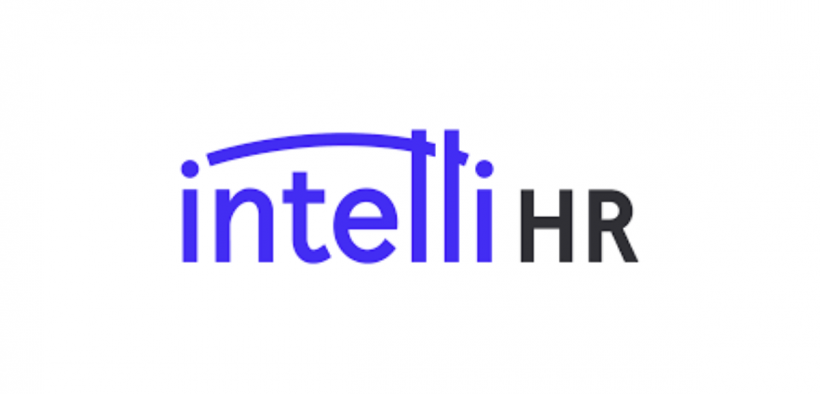As AI gathers steam, intelliHR is driving the engine
Share

It’s difficult to swipe a news app this week without hearing more about OpenAI’s new artificial intelligence or how AI is set to change the world.
The energy in the media is justified. AI is going to change the way we access and analyse information in the world. And as Microsoft, Google, IBM and intelliHR are showing us – it’s already begun.
Check out: Why do most Aussies not trust AI in the workplace?
IBM says that artificial intelligence ‘leverages computers and machines to mimic the problem-solving and decision-making capabilities of the human mind.’ In simple terms, this is a computing methodology that uses large (often huge) amounts of data, computing capabilities, machine learning and deep learning to make predictions or classifications, provide information or even – now – write poems based on questions and data input into its systems.
What is machine learning?
Machine learning, as mentioned above, is one component of AI. With machine learning, a computer is able to learn and adapt without being given specific instructions to do so. Instead, humans provide it with a set of algorithms and statistical models that allow it to look at and analyse patterns in the data and then draw new inferences.
For example, imagine you inputted a set of images of dogs into a computer, including a cocker spaniel, a Maltese and a greyhound and informed your computer that those were ‘dogs’. Your computer would then be able to recognise those specific images as images of dogs whenever presented with them. But if you showed it a picture of a husky or a bulldog, it would not be able to recognise those as ‘dogs’.
With machine learning, your computer would be able to analyse the set of data you provided it (a cocker spaniel, Maltese and greyhound), and make inferences that the bulldog and the husky – and many other types of dogs – were dogs as well. In other words, it can adapt without specific instructions.
What is deep learning?
Deep learning is another part of AI. IBM says that ‘deep learning attempts to mimic the human brain – albeit far from matching its ability – enabling systems to cluster data and make predictions with incredible accuracy.’
Deep learning ‘is essentially a neural network with three more layers’. These are created to simulate how the human brain works, and allow it to learn large amounts of data, but also make more accurate predictions.
Why does AI matter?
Artificial intelligence isn’t new. The first successful AI program was run in 1951 By Christopher Strachey at the University of Oxford. But today’s advances are being hailed as ‘literally magic’ with many experts believing that AI will ultimately transform all industries.
When it comes to business, artificial intelligence’s hype is justified because of its ability to provide fast, accurate information. It’s particularly skilled at performing repetitive, detail-oriented tasks (ones that people are traditionally not great at), and with machine learning, can continue to grow its skills as it performs those tasks.
So as AI becomes more advanced, we’ll see more and more specific applications being developed. But before you think we’re talking about the future of tech, AI is already here. And the release of ChatGPT has brought it to the forefront of media awareness.
What’s the big deal with ChatGPT?
ChatGPT has taken what was previously a sensation only in the backroom, ‘tech-advanced’ communities and made it the new (and extremely popular kid) on the block. Released by OpenAI, ChatGPT is a bot that can not only answer questions and inform responses, but also be creative and even authoritative. That means it can draft an email to your boss or pull together a solid list of the Chinese restaurants in your area.
Most experts agree, that it’s not ‘smart enough to replace all humans’, but it’s certainly showing the world what AI is capable of. And it’s becoming big business. Last month, Microsoft pledged to invest billions of dollars into OpenAI, and ChatGPT is now the brains behind Bing’s new highly competitive search engine which is giving Google, and its 84% market share of search, a serious run for its money.
Kevin Roose, a technology columnist at the New York Times said, ‘When the new Bing works, it’s not just a better search engine. It’s an entirely new way of interacting with information on the internet, one whose full implications I’m still trying to wrap my head around.’
And that’s the kicker. It’s not just a new application. It’s a new way of thinking and interacting with information. And this new way of interacting with information – both on the internet and on proprietary systems – is certainly set to change the world.
What about artificial intelligence in other industries?
AI is not just for the Microsofts and Googles of the world. AI is being implemented to create more robust data sets, better predictions and higher-quality decision-making across many industries, including transportation, healthcare, finance, manufacturing and, of course, human resources.
Check out: Singaporean deep-tech startup sets AI hub in Victoria
In the field of HR, intelliHR has embraced AI and machine learning to continually mine and improve its insights and analytics. The company uses AI to provide organisations with direct access to robust data sets and fast and accurate information through advanced HR analytics.
intelliHR is an excellent example of how non-tech industries can use AI to be more successful and create better outcomes. For example, by using cutting-edge AI, intelliHR customers are able to make better, faster and more informed decisions about their people, increasing retention, creating better performance management opportunities and building a better business overall.
These opportunities, and the future opportunities that AI will continue to offer, are why progressive leaders in over 20 countries have adopted intelliHR systems.
In an example of the machine teaching humans, intelliHR has used its AI program to describe its capabilities and benefits. This meta-take on AI analysis would have been inconceivable a decade ago and will likely be left in the dust a decade from now.
intelliHR has utilised AI to allow them to visualise data in new and intelligent ways so their clients can take the action that matter the most. And this is the way that AI is changing the face of HR, and the information world.
Eliza is a content producer and editor at Public Spectrum. She is an experienced writer on topics related to the government and to the public, as well as stories that uplift and improve the community.










Today’s Pick
11th Annual Aus Goverment Data Summit
April 1, 2025
7th Annual NZ Government Data Summit
May 7, 2025
3rd Public Sector Comms Week
May 14, 2025
Subscribe
We send emails,
but we do not spam
Join our mailing list to be on the front lines of healthcare , get exclusive content, and promos.
AI appointment Australia Australian boost boosts business businesses covid-19 cyber cyber attack cybersecurity cyber security data data breach data management defence Digital employment enhance enhances fraud funding governance government grants infrastructure Innovation Lockdown management new zealand NSW NZ online privacy public Public Sector queensland renewable energy scams security Social Media Technology telecommunications victoria
-

Understanding and building your digital strategy
Digital Government, Opinion
-

Featured Leader: Jamie Morse on multi-channel strategies for communication
Communications, Featured Leader
-

Featured Leader: Tegan Tembe of NSW Treasury on creating solid planning strategies and processes
Featured Leader
-

Wirraka Maya Health Service improves patient care with My Health Record
Learning
Show More-

Effects of ineffective communication in the workplace
Communications, Personal Development
-

7 ways you can enhance your personal development skills
News, Personal Development
-

5 advantages of working in the public sector
News, Personal Development, Professional Development
-

7 causes of communication issues in the workplace
Communications, News, Personal Development
Show MoreLast Viewed